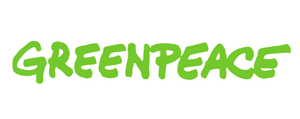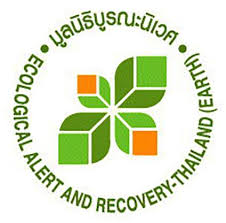

Community Rights Advocates Challenge to ASEAN Leaders:
End the Toxic Trade in Plastics and E-Waste
Bangkok, Thailand, 18 June 2019 — As the 34th ASEAN Summit gets underway, chaired by Thailand under the theme of “Advancing Partnership for Sustainability,” community rights advocates from Malaysia, Philippines and Thailand are uniting to challenge ASEAN leaders to establish bold and visionary regional policies to immediately ban the flow of foreign plastic waste and e-waste entering the region, and regulate the production and consumption of single-use plastics.
The call was made at a press briefing today by Greenpeace Southeast Asia and Ecological Alert and Recovery Thailand, which teamed up to launch new research and a policy paper on the waste importation crisis being faced by Thailand and the larger ASEAN region. Both organisations are shocked to note ASEAN’s failure to add this urgent issue to the Summit agenda.
“Sadly, the ASEAN region remains the hub of choice for foreign waste disposal following China’s ban in 2018,” said Lea Guerrero, Country Director for Greenpeace Philippines.” Plastics and electronic waste are traded using loopholes in regulations under the guise of ‘recycling’ and ‘recovery’ of raw materials. However, much of the imported waste ends up in landfills or is burnt at illegal sites, posing a threat to people and the environment.”
In the policy brief ‘Southeast Asia’s Struggles Against the Plastic Waste Trade’ [1] Greenpeace Southeast Asia highlights how the region is now at a tipping point in its relationship with the waste trade, with more and more countries lining up to issue bans or ordering foreign waste be sent back to its country of origin.
Meanwhile, Ecological Alert and Recovery Thailand’s report ‘Trading Away Health and the Environment: The Toxic Business of Waste Imports into Thailand’ [2] takes stock of the increase in plastics and electronics waste imports into Thailand since 2014, and the devastating impacts it is having on communities, particularly those in provinces with direct access to seaports.
Penchom Saetang, Director of Ecological Alert and Recovery Thailand explains, “Although at first glance, our leaders may consider this as an opportunity for industrial development, the corresponding price we pay for our loss of health, clean drinking water and land to live is incalculable. If indeed ASEAN leaders accept responsibility for developing sustainable security and a green economy in line with our region’s commitment to Agenda 2030 to ‘leave no one behind’, then welcoming plastics and electronic waste from abroad in the name of development must urgently end.”
Coinciding with the release of the two papers, Greenpeace has launched a petition, NO SPACE FOR WASTE, [3] calling on ASEAN leaders to end this plastic waste crisis with the following recommendations:
-
- Declare an immediate ban on all imports of plastic waste and e-waste, even those meant for “recycling,” and ensure all ASEAN countries ratify the Basel Ban Amendment [4];
- Establish a holistic regional policy geared toward massively reducing the production of single-use plastic packaging and products, and facilitating innovation on reusable packaging and alternative delivery systems; and
- Advance a sustainable and ethical circular economy framework, grounded on zero waste approaches, that protects human health and the environment, and enables the ASEAN region to decouple growth from excessive resource extraction, production, consumption and wastage.
“This is an ASEAN problem. All countries need to make an urgent joint declaration to end the trade in plastic waste imports from abroad, and put in place systems to support a sustainable plastic free world,” said Heng Kiah Chun. Campaigner, Greenpeace Malaysia.
-ENDS-
Note to Editor :
[1] Policy Brief ‘Southeast Asia’s Struggles Against the Plastic Waste Trade’ can be downloaded here.
[2] Report “Trading Away Health and the Environment: The Toxic Business of Waste Imports into Thailand” can be downloaded at: www.earththailand.org
[3] Link to petition page.
[4] Most recently, in May 2019, parties to the Basel Convention agreed to adopt amendments to include the most contaminated, mixed and unrecyclable plastic waste under the Convention, requiring that countries exporting plastics obtain the prior consent of receiving countries, environmentally sound management processes are undertaken for their disposal, and where facilities exist, for such wastes to be dealt with at the source to avoid transboundary movement. With the 187 Parties in agreement, the amendment is to come into force in one year, with implementation to be facilitated through the development of a new tripartite “Partnership on Plastic Waste”. However, given the pressures from corporate lobby groups involved in the plastics trade, civil society groups will need to continue to monitor and pressure Parties as well as complicit private sector interests to demand compliance.
For more information, please contact:
Penchom Saetang, Director of Ecological Alert and Recovery-Thailand (EARTH) Email:[email protected], Ph: +66816117473
Somrudee Panasudtha, Media Campaigner, Greenpeace Southeast Asia (Thailand)
Email: [email protected], Ph: +66819295747
Ecological Alert and Recovery Thailand is an independent non-governmental organisation that works with communities affected by hazardous waste contamination to mobilise for social and environmental justice and monitors policies as well as practices related to industrial pollution. www.earththailand.org
Greenpeace is an independent global campaigning organisation that acts to change attitudes and behaviour, to protect and conserve the environment, and to promote peace. Greenpeace Southeast Asia was formally established on March 1, 2000. Often working with other local groups, Greenpeace Southeast Asia has run successful campaigns in Thailand, Philippines, Indonesia, and Malaysia. Through its campaigns, Greenpeace Southeast Asia aim to protect the region from further ecological ruin and serve as beacon of awareness and action for environmental protection and sustainable development. https://www.greenpeace.org/southeastasia/
